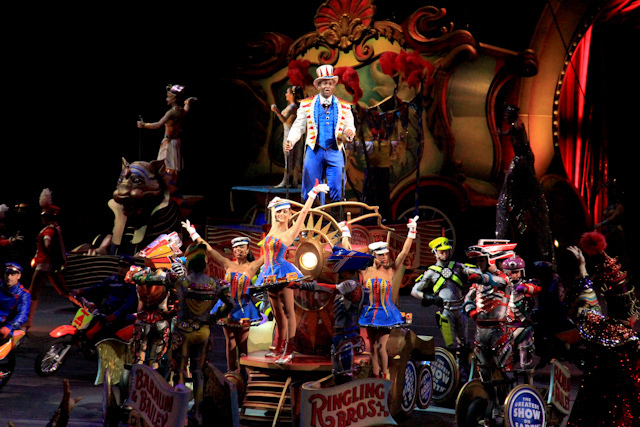Ringling Brothers Fold Their Tents for Good
After over 100 years of tradition, the Ringling Brothers and Barnum & Bailey Circus comes to an end.
Jan 25, 2017
What was once dubbed “The Greatest Show on Earth” is finally bringing down its tent in 2017. After 146 years of traveling across the country, the Ringling Brothers and Barnum & Bailey Circus has decided to end its shows once and for all due to high operating costs and a steady decline in ticket sales over the years. Feld Entertainment has owned the company for the past 50 years, and announced their decision to close the circus, after one last performance in May. Many mourn the loss of such an iconic tradition, but the closing of the Ringling circus is simply an indication of the changing interests and culture of today’s modern society.
The Ringling Bros. circus faced many issues that led to the final decision of closing it down for good, but the main dilemma arose when it came to profitability. With ticket sales dwindling, the company could not figure out a business model in which continuing the circus would produce the sizable profit it needed in order for it to be a sustainable enterprise. While around 1o million people attended the show each year, the cost of running the circus became more of an expense than it was in previous time periods. Moving performers and their families, large stage props, countless costumes and living animals, all in two specially customized trains is costly in today’s world, especially when each year there is less and less money to work with. The company’s only solution so that they could afford the circus would have been to raise ticket prices, which was not a feasible idea since raising ticket prices would drive away customers who would no longer be willing to pay the new amount.
However, the slow loss of interest in the Ringling Bros. circus was not a sudden occurrence, and the company has struggled to stay in the public’s favor, especially when it came to the elephant show. The Ringling Bros. Circus was frequently under attack by animal rights groups such as PETA for forcing elephants to perform in their shows. The heavy criticism the circus drew from having the elephant act, as well as the numerous lawsuits brought against them (on top of a $270,000 fine for the alleged mistreatment of their animals), caused the company to phase out their elephant shows in order to quell the negative outcry. While this was well done by the circus, it failed the company when it came to revenue, and ticket sales plummeted, seeing as the elephant act was one of Ringling Bros. most famous and well-known acts. When the company was unable to bounce back after ending its most problematic act, it was made evident that today’s consumer has outgrown their circus.
“I’m happy that the circus is closing, since it means that some animals will be saved from daily torture that is solely for the purpose of our entertainment,” sophomore Paola Gonzalez said.
While this may all make sense in a corporate point of view, many people will still grieve over losing such an old and recognizable show. Many people went to the circus to feel nostalgic about their own childhoods, and to pass on to their children what they felt was a cherished memory. Although this may be the case for some, it is also important to remember that as a society, our interests and concerns are changing, and along with that, our entertainment preferences. The Ringling Brother and Barnum & Bailey Circus began their tradition in 1884, a drastically different era. Back then, there was a limited amount of entertainment, and animal rights weren’t a prominent concern. Nowadays, innovations in technology and theatre have opened the doors for newer, more modern shows (featuring only human acts) to gain popularity and renown amongst the younger generation, such as the Cirque du Soleil. Like most things, Ringling Bros. had its glory days, and it is now time to move on.
While it is important to acknowledge the rich history surrounding the Ringling Brothers and Barnum & Bailey Circus, it is impossible to deny that the circus had run its course and simply did not fit in anymore.














